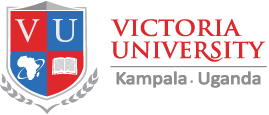Quick Facts
Credential
Master's Degree
Delivery Options:
Both On-Campus and Online - Some of your Classes will be in-person, on campus and some will be done online.
Duration: 2 years
With a typical full-time course load, this programme will take 2 years to complete.
Language of instruction
english
Admission Requirements
Normal Entry Requirements for Degree Courses (in line with NCHE requirements):
To gain admission to the programme, you must first of all satisfy the general requirements for admission into Victoria University at a Masters level. In addition a candidate shall be eligible for admissions to the programme on meeting any of the following minimum qualifications:
A good first degree from Victoria University, Uganda, or any accredited university in Uganda in a similar program with at least a second class degree.
Any recognized international degree in Mass Communication or related field with at least second-class honors or its equivalent.
Applicants with a PGD in Mass Communication, media studies or any other closely related field are also considered.
Applicants whose first language is not English will be required to demonstrate a proficiency in the English language by passing an English proficiency Test conducted by the University.
Admission Requirements Postgraduate Students (Ugandans)
· Bachelor’s Degree transcript
· Diploma transcript if applicable
· Certificate if applicable
· UACE result slip
· UCE result slip
· National ID/passport/ birth certificate
· Two Passport Photos
· Admission fee receipt UGX 250,000
Admission Requirements Postgraduate students (Non-Ugandans)
· Bachelor’s transcript
· Diploma transcript if applicable from NCHE
· Certificate if applicable from NCHE
· Secondary certificate from UNEB
· National ID/passport/ birth certificate
· Two passport photos
· Admission fees Receipt $78
What you will Learn
When you successfully completes the course you will have achieved the following Course Learning Outcomes: You will be able to:
Make you highly sought after and employable.
Improved knowledge and capacity in the use of the latest technologies to enable them collect, process, store and disseminate information in a timely and effective manner.
Improve your ability to be self-starters and self-motivated individuals with the drive and resilience required to excel in such a demanding and competitive field.
Career Opportunities
With a Master's in Journalism and Media Studies, you can pursue a variety of exciting career opportunities in the field of media, communications, and journalism. Here are some potential career options:
Journalist: You could work as a journalist in print, broadcast, or online media, covering news, politics, business, sports, culture, or other areas of interest. You could be a reporter, correspondent, anchor, or editor, producing news stories, features, opinion pieces, or investigative reports for newspapers, magazines, TV, radio, or online outlets.
Media Producer: As a media producer, you could work in broadcast or digital media, creating content such as TV shows, documentaries, podcasts, videos, or multimedia presentations. You could be involved in all aspects of production, including content development, scriptwriting, editing, and post-production.
Public Relations Specialist: In this role, you would work in PR agencies, corporate communications departments, or non-profit organizations, managing the image and reputation of clients or organizations. You would develop and implement communication strategies, create press releases, coordinate media events, and engage with the media to shape public perception.
Communications Manager: You could work in corporate communications, overseeing internal and external communications for organizations. You would develop communication plans, manage media relations, write speeches, create content for websites, social media, and other communication channels, and ensure consistent messaging.
Digital Media Strategist: In the age of digital media, you could work as a digital media strategist, developing and implementing digital marketing and communication strategies for organizations. This could involve managing social media accounts, creating content for websites and blogs, conducting data analysis, and optimizing online presence.
Media Researcher: As a media researcher, you could work in academia, think tanks, or research organizations, conducting research on media, journalism, or mass communication topics. This could involve studying media effects, media policy, media ethics, media ownership, or audience research, among others.
Media Consultant: With expertise in journalism and mass media studies, you could work as a media consultant, providing strategic advice, training, or analysis to media organizations, newsrooms, or other stakeholders in the media industry.
Media Educator: You could work as a lecturer, professor, or instructor in universities, colleges, or media training institutions, teaching courses on journalism.
Tuition & Fees
The tuition and fee amounts are estimates based on current academic year's rates. For financial planning purposes, please use these totals as an approximate estimate of your costs. Actual fees may vary by term and enrolment activities.
Download
